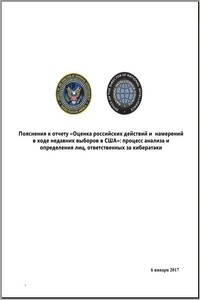The Run of His Life: The People v. O. J. Simpson - [7]
In January 1994, when Nicole moved into the Bundy condominium, her relationship with O.J. oscillated between reconciliation and a final breach, and the financial tensions between them escalated. The first point of conflict revolved around a man named Kato Kaelin. Although the Simpson affair made the name Kato synonymous with houseguest, his original relationship to Nicole was the more familiar one of tenant to landlord. Kaelin had rented her guest house at Gretna Green for five hundred dollars a month, a figure he could reduce somewhat by baby-sitting for her children. (During this period Sydney and Justin grew so fond of Kato that they named their pet Akita after him.) When Nicole moved to Bundy, she and Kaelin planned to continue the deal, with Kato paying to stay in a small guest suite wedged between the garage and kitchen. Shortly before the move, however, O.J. told Kaelin that although he had had no objections to his living in a separate guest house at Gretna Green, he didn’t want him living under the same roof as his ex-wife. Simpson’s solution was to give Kaelin a rent-free guest house at his home on Rockingham. O.J.’s offer thus simultaneously removed a potential rival for Nicole’s affections and took money out of his ex-wife’s pocket. It also led ultimately to Kaelin’s prominent place in the history of freeloading.
In May 1994, O.J. and Nicole’s final attempt at a reconciliation ended, leading to a financial controversy that dwarfed the dispute over Kato Kaelin. Around Memorial Day, less than six months after she and her children had settled into the Bundy condominium, Nicole called Jeane McKenna and said they would have to move out because O.J. was threatening to report her to the Internal Revenue Service.
When Nicole had sold her rental property in San Francisco she had invested the proceeds in the home on Bundy, but she apparently told the IRS that the new place was also a rental property. As a result, she had avoided tax on the initial sale. For tax purposes, she kept Rockingham as her official residence. Around Memorial Day, O.J. told her that he would no longer permit her to use his address. “He’s threatening to tell the IRS that I’m living in Bundy,” Nicole told McKenna. As a legal matter, O.J. seems to have had a point, but McKenna scoffed at the idea that Simpson would force his children to move for the second time in a year. “Oh yes he is,” Nicole told her broker. “Of course he is-the asshole.” In the entry in her diary for June 3, Nicole quoted the exact words of O.J.’s threat: “You hang up on me last nite, you’re gonna pay for this bitch, you’re holding money from the IRS, you’re going to jail you fucking cunt. You think you can do any fucking thing you want, you’ve got it comming-I’ve already talked to my lawyers about this bitch-they’ll get you for tax evasion, bitch, I’ll see to it. You’re not going to have a dime left bitch etc.”
On Monday, June 6, O.J. delivered on his threat. He put his warning in icily official terms, in a typed, formal letter to his ex-wife, which began: “Dear Nicole, On advice of legal counsel, and because of the change in our circumstances, I am compelled to put you on written notice that you do not have my permission or authority to use my permanent home address at 360 North Rockingham… as your residence or mailing address for any purpose… I cannot take part in any action by you that might intentionally or unintentionally be misleading to the Internal Revenue Service…” Nicole showed the letter to her friend Cynthia Shahian on June 7. Not surprisingly, Nicole was horrified by it-especially by the prospect of being forced to move out of Bundy so soon after she and her children had moved in. The same day Shahian saw the letter, June 7, Nicole also telephoned the Sojourn shelter for battered women in Santa Monica to report that she was being stalked by O.J.
On Thursday, June 9, on Nicole’s instructions, McKenna officially put 875 South Bundy up for lease, asking $4,800 a month. “Drop dead gorgeous 1991 townhome in the heart of Brentwood” was how McKenna described the property in the listing. Nicole told Jeane McKenna that if she stayed at Bundy, it would cost her $90,000 in taxes, which was just about all the money she had in the world. She didn’t want to sacrifice that stake, so she decided to look for a new place to live with her kids.
The following morning, Friday, June 10, Nicole spoke with her friend Ron Hardy, a bartender and host at several Los Angeles nightspots. Nicole explained that she was just about to leave to go look at houses with McKenna. “She was happy,” Hardy later recalled. “She said everything’s great, she hadn’t felt this good in a while. She felt that she had finally put O.J. behind her.” Nicole made dinner plans with Hardy for Monday night, then spent the rest of the day with McKenna seeking a place to lease. “We were together all day, looking at houses,” McKenna later recalled. “She knew the kids really liked Bundy and wouldn’t want to move, so she wanted to do something special for them, to give them something they would want-especially a pool. And by the end of the day, we found a place for her in Malibu, a one-story contemporary with a pool and a view of the ocean, for five thousand a month. I remember walking up the hill there with her. We were smoking. Nobody smokes in Brentwood, so we used to sneak it together, and she was saying, like she couldn’t really believe it, ‘I can really do this. I can lease the house and move. I can really do this.’ ”

Книга представляет собой подробное исследование того, как происходила кража величайшей военной тайны в мире, о ее участниках и мотивах, стоявших за их поступками. Читателю представлен рассказ о жизни некоторых главных действующих лиц атомного шпионажа, основанный на документальных данных, главным образом, на их личных показаниях в суде и на допросах ФБР. Помимо подробного изложения событий, приведших к суду над Розенбергами и другими, в книге содержатся любопытные детали об их детстве и юности, личных качествах, отношениях с близкими и коллегами.

УДК 908(470.23-25) ББК 26.89(2-2Санкт-Петербург) П58 Иллюстрации Марии Афанасьевой Попов, В. Культовый Питер / Валерий Попов. — М.: ACT: Олимп, 2010. — 315, [5] с. ISBN 978-5-17-043065-9 (ООО «Издательство АСТ») ISBN 978-5-7390-2038-3 (ООО «Агентство «КРПА «Олимп») Это город манит к себе тысячи туристов. О нем много написано и много рассказано. Но он все равно — тайна... Санкт-Петербург. Не помпезная, чарующая золотом дворцов и гранитом набережных столица Российской империи.

В книге «Приговор народа» собрана небольшая часть документов и откликов, которые появились в нашей периодической печати в дни процесса над контрреволюционным, антисоветским, троцкистским центром. Но и то немногое, что здесь собрано, с чрезвычайной яркостью выражает всю силу ненависти и гнева советского народа против контрреволюционных троцкистов — врагов, изменников и предателей родины, подлых вредителей, кровавых псов фашизма и поджигателей войны, против врагов всего передового человечества.

Каждая женщина мечтает быть красивой, стройной и сексапильной, и современная индустрия красоты готова удовлетворить любую женскую прихоть. Модная одежда, обувь на высоких каблуках, диеты, фитнес, корректирующие пластические операции и омолаживающие косметические процедуры сегодня доступны каждой женщине. Но немногие задумываются о том, что новомодные диеты приводят к серьезным заболеваниям, antiage-терапия может дать тяжелые осложнения, а дорогостоящая «хирургия красоты» может стать угрозой для жизни. В этой книге популярный телеведущий Игорь Прокопенко проводит журналистское расследование, в котором рассказывает об опасных побочных эффектах популярных косметических процедур и омолаживающих технологий, а знаменитый врач-кинезитерапевт, доктор медицинских наук, профессор С.М.

Доклад разведсообщества США о причастности России к хакерским атакам избирательной системы вызвал противоречивую реакцию в СМИ: многие сочли его недостаточно убедительным, российские парламентарии назвали «прямым оскорблением американцев». Открытая Россия полностью перевела незасекреченную часть доклада - чтобы читатели могли самостоятельно составить о нем свое мнение.Документ содержит аналитические выводы, сделанные и совместно согласованные Центральным разведывательным управлением (ЦРУ), Федеральным бюро расследований (ФБР) и Агентством национальной безопасности США (АНБ)
